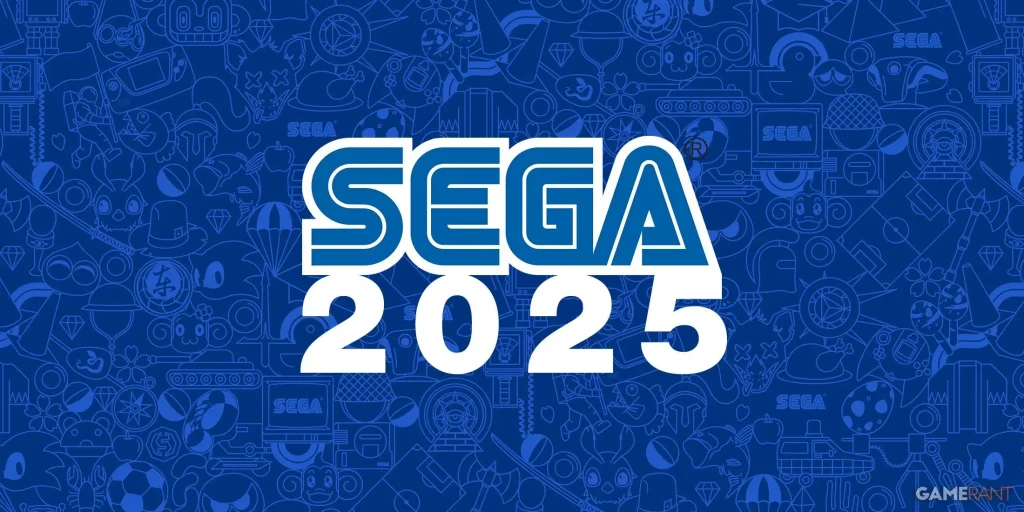Sega FY2025 revenue reveals a complex landscape for the gaming giant, as the company reported an 8.5% decline in net sales this fiscal year, despite achieving noteworthy gains in its entertainment division. The impressive growth in ordinary income, soaring from ¥30.8 billion in 2024 to ¥41.8 billion in 2025, highlights the resilient performance of Sega’s back catalog and the positive influence of successful franchises like the Sonic movies. While the overall figures reflect challenges, the boosts in game sales and strong online content offerings demonstrate Sega’s strategic capacity to weather industry fluctuations. The pandemic’s aftermath and the cancellation of Football Manager 25 cast shadows on certain segments; however, Sega’s focus on transmedia development has certainly enriched its portfolio. As the company looks ahead, strengthening existing IPs while launching exciting new titles seems pivotal for reversing the trend in Sega’s revenue drop and enhancing player engagement.
Examining Sega’s financial outlook for FY2025 indicates a unique juxtaposition of gains and losses within the company’s operations. The entertainment sector, including video games, has seen significant growth, yet an overall decrease in revenue suggests broader market challenges. Factors such as the impact of Sonic films and the emergence of innovative projects across various media platforms played a critical role in shaping Sega’s performance this past year. Despite setbacks like the pause on Football Manager 25, the gaming titan remains focused on leveraging its rich portfolio through continued transmedia projects. Consequently, this fiscal year serves not only as a reflection on past performance but also lays the groundwork for Sega’s ambitious development strategies moving forward.
Sega FY2025 Revenue Overview
Sega Sammy’s financial report for the fiscal year ending March 31, 2025, reveals a complex picture of performance. Although the company faced an overall 8.5% decline in net sales, reaching ¥428.9 billion ($2.89 billion), there were noteworthy highlights within its operational sectors. The entertainment division, which encompasses video games, showed resilience with a significant increase in ordinary income, climbing from ¥30.8 billion in the previous year to ¥41.8 billion. This surge was largely driven by robust repeat sales from Sega’s back catalog, combined with lucrative DLC offerings.
Despite the cancellation of Football Manager 25, Sega’s strategic focus on its legacy titles and strong franchises like Sonic the Hedgehog bolstered its financials. The company reported that the performance of mainstay new titles and sustainable income streams from established games cushioned the impact of the overall revenue drop. With the upcoming releases in FY2026, Sega aims to sharpen its competitive edge within the gaming industry and further enhance its revenue growth strategy.
Impact of Sonic Movies on Sega’s Revenue
The Sonic movie franchise has played a pivotal role in enhancing Sega’s revenue streams and overall brand visibility. The positive reception of the Sonic films not only garnered significant box office returns—surpassing $490 million globally—but also helped in driving sales in related video games and merchandise. This transmedia synergy between films and game sales underscores the importance of cross-industry collaborations, illustrating how entertainment can unlock new markets for gaming companies like Sega.
As the Sonic franchise continues to expand its narrative reach through multiple platforms, Sega plans to leverage this momentum to promote upcoming releases such as Sonic Racing: CrossWorlds. The effects of successful transmedia development strategies are evident, as they contribute to a steady influx of revenue, particularly reflected in increased DLC sales and licensing opportunities that capitalize on Sonic’s cinematic success.
Performance of Sega’s Entertainment Division
Sega’s game and entertainment division experienced notable growth despite broader revenue challenges faced by the company. The fiscal year results displayed an impressive performance from high-margin repeat sales, which accounted for an essential part of the division’s success. While the conventional segment saw declines in overall income, the entertainment division reported an increase in ordinary income, emphasizing the importance of strategic content management and IP development.
This growth is attributed to the combination of favorable market dynamics, successful product launches, and the ability to capitalize on emerging trends in gaming, including the popularity of free-to-play models. Sega not only focuses on refining its existing title portfolio but also on generating new content that resonates with audiences, ensuring that the entertainment division remains robust going into FY2026.
Revenue Challenges and Strategic Responses
Although Sega reported a dip in net sales and operating income for FY2025, the company’s strategic responses highlight its resilience. The cancellation of Football Manager 25 was a significant setback; however, Sega quickly pivoted by reinforcing its commitment to high-impact series like Total War and the development of new gaming IPs. This strategic foresight aims not only to mitigate current financial losses but also to pave the way for future growth opportunities.
Further investments in legacy intellectual properties signify Sega’s long-term vision to revitalize classic franchises such as Crazy Taxi, Golden Axe, and Jet Set Radio. By enhancing its portfolio through remakes or sequels, Sega can potentially tap into nostalgia-driven sales while attracting newer generations of gamers.
The Future of Sega’s Game Sales
Looking ahead, Sega’s game sales strategy appears optimistic based on upcoming titles and innovative releases planned for FY2026. The company is preparing to launch several new projects, including Sonic Rumble and Persona 5: The Phantom X, each expected to draw significant attention in both domestic and international markets. The anticipation surrounding these releases reflects the ongoing commitment to expand and diversify Sega’s product offerings.
By harnessing insights gained from FY2025’s financial performance, Sega aims to refine its marketing and sales strategies for new releases, focusing on maximizing consumer engagement and leveraging digital distribution channels effectively. As the gaming landscape evolves, adapting to market demands and consumer preferences will be crucial for inspiring robust sales growth.
Transmedia Development: A Strong Revenue Driver
Transmedia development has emerged as a key operational strategy for Sega, contributing significantly to the company’s revenue resilience during FY2025. By expanding franchises across different media formats, Sega is effectively creating an ecosystem that fosters cross-promotion and increased consumer interest in its gaming titles. The success of Sonic the Hedgehog in both films and games is a prime example, illustrating how well-executed transmedia strategies can enhance brand equity.
In addition to capitalizing on existing franchises, Sega’s investment in developing new content for transmedia platforms indicates a forward-thinking approach. This strategy not only strengthens the appeal of its titles but also opens pathways for diverse revenue streams, making the entertainment division a critical component of Sega’s financial health going forward.
Free-to-Play Titles and Revenue Generation
The success of free-to-play titles within Sega’s portfolio has contributed positively to its overall revenue, despite challenges faced during FY2025. The company’s offerings in this segment have seen strong performance, particularly through DLC sales which have repeatedly engaged users and fostered sustained gameplay experiences. This revenue model has allowed Sega to tap into a broader audience, capitalizing on microtransactions and in-game purchases.
Moreover, the strategic release of free-to-play games aligns well with current consumer trends favoring accessibility and immediate gameplay experience. As Sega continues to explore this format with new titles like Sonic Rumble, the company projects that free-to-play gaming will remain a significant aspect of its market strategy, ensuring ongoing revenue generation and audience retention.
Sega’s Commitment to Legacy IP
Sega’s dedication to reviving its legacy intellectual properties reflects a strategic approach aimed at revitalizing classic game franchises while attracting new players. With plans to revisit titles that have defined its history, such as Golden Axe and Crazy Taxi, Sega is positioned to reintroduce these beloved IPs to both longtime fans and younger audiences alike. This strategy not only capitalizes on nostalgia but also paves the way for additional revenue opportunities.
The focus on legacy IPs is complemented by Sega’s commitment to enhancing these titles through modern updates and engaging gameplay experiences. By leveraging current technologies and design philosophies, Sega can ensure that its classic games resonate well with contemporary gamers while instilling a sense of historical appreciation that solidifies player loyalty.
Global Strategy and European Business Plans
As part of its global strategy, Sega is committed to expanding its business operations in Europe, particularly through its successful Football Manager and Total War franchises. By emphasizing growth in these regions, Sega aims to strengthen its brand presence and drive sales in key international markets. The company recognizes Europe as a vital territory for its gaming products and intends to tailor its approach to meet regional preferences and consumer behaviors.
The response to external market factors, like US tariff increases, remains crucial in shaping Sega’s European growth strategy. By planning to adapt its business operations and product offerings to mitigate any potential impacts, Sega shows resilience and foresight as it navigates the complex landscape of international game sales, ensuring that it remains a competitive player in the global gaming market.
Frequently Asked Questions
What factors contributed to the Sega FY2025 revenue drop despite some strong performances?
Sega’s FY2025 revenue drop of 8.5% was cushioned by strong performance in its game and entertainment division. Key factors included high-margin repeat sales in the back catalog, boosted by the popularity of Sonic movies, DLC sales, and licensing revenue, even with the cancellation of Football Manager 25.
How did Sega’s game sales impact FY2025 revenue?
Sega’s game sales were a significant contributor to FY2025 revenue, with a reported rise in ordinary income from entertainment contents. Despite the overall revenue drop, the strong performance of new titles and repeat sales from established franchises helped mitigate losses.
What is the significance of the Sonic movies on Sega’s entertainment revenue?
The Sonic movies have had a positive impact on Sega’s entertainment revenue in FY2025. They contributed to the strong sales of high-margin products in Sega’s back catalog, leading to increased ordinary income despite an overall revenue decline.
What strategies is Sega employing to combat the revenue drop in FY2025?
Sega plans to combat its FY2025 revenue drop by expanding transmedia development, enhancing existing IPs like Sonic and Football Manager, and focusing on new game releases in upcoming fiscal years, including Sonic Racing: CrossWorlds and Yakuza 0 Director’s Cut.
How does transmedia development play a role in Sega’s future revenue strategy?
Transmedia development is crucial for Sega’s future revenue strategy, as it aims to increase the value of its IPs. Projects such as Sonic x Shadow Generations and the integration of various media formats are expected to enhance visibility and drive sales.
What are Sega’s plans regarding the Football Manager series post-FY2025 revenue drop?
Sega is committed to revitalizing the Football Manager series despite the FY2025 revenue drop, with a planned release in 2026. They aim to strengthen the brand and improve operations, indicating a long-term investment in its success.
How does Sega plan to address licensing revenue in light of the FY2025 results?
Sega plans to continue enhancing licensing revenue by leveraging successful franchises and expanding opportunities through strategic partnerships in both gaming and other entertainment platforms.
What upcoming titles does Sega anticipate launching that may influence future revenues?
Sega anticipates launching several key titles such as Sonic Racing: CrossWorlds, Yakuza 0 Director’s Cut, and new free-to-play games like Sonic Rumble and Persona 5: The Phantom X, which they expect will positively impact future revenues.
What were Sega’s overall financial figures for FY2025, and how might these affect investor confidence?
For FY2025, Sega reported net sales of ¥428.9 billion, down 8.5%, and operating income of ¥48.1 billion, down 16.8%. These figures may impact investor confidence, but the strong performance in game sales and a commitment to growth and innovation may assuage some concerns.
What steps is Sega taking to improve its legacy IPs in response to the FY2025 revenue trends?
Sega is actively working on reviving legacy IPs such as Crazy Taxi and Jet Set Radio as part of its strategic focus on enhancing older titles. This revival is aligned with their goal to attract both nostalgic fans and new players, aiming to boost revenue figures moving forward.
| Key Metrics | FY2025 Results | Year-on-Year Change |
|---|---|---|
| Net Sales | ¥428.9 billion ($2.89 billion) | -8.5% year-on-year from ¥468.5 billion in FY2024. |
| Operating Income | ¥48.1 billion ($323 million) | -16.8% year-on-year from ¥57.7 billion in FY2024. |
| Ordinary Income | ¥53.1 billion ($357 million) | -11.1% year-on-year from ¥59.8 billion in FY2024. |
| Key Factors | Strong sales in game and entertainment division, especially repeat sales and DLC. | |
| Future Prospects | Upcoming releases include Sonic Racing: CrossWorlds, Yakuza 0 Director’s Cut, and new free-to-play titles. |
Summary
Sega FY2025 revenue reflects a mixed performance as net sales fell by 8.5% to ¥428.9 billion, yet the company showcased resilience through the strong performance of its game and entertainment division. With a notable increase in ordinary income from entertainment content, driven by successful repeat sales in its game catalog and fruitful licensing revenues, Sega illustrates its adaptability in a challenging market. As it prepares for significant upcoming titles and the revival of legacy IPs, Sega is positioning itself for growth in the upcoming fiscal year.



